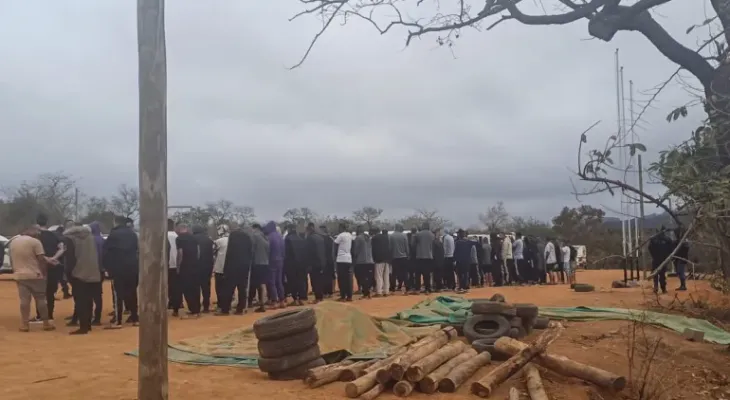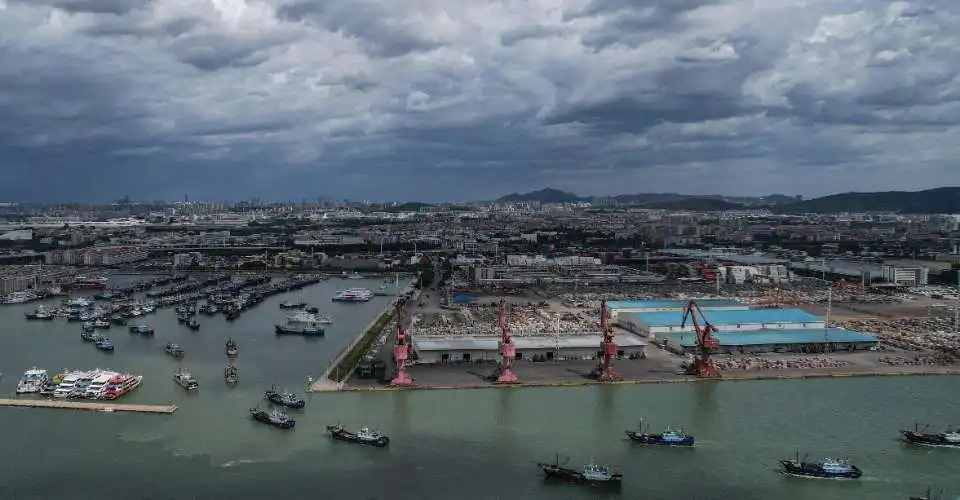
The US, Japan and Australia – the three other members of this coalition formed to counter China’s influence – have been “extremely strong in terms of dealing with Putin’s aggression”, he said.
India, however, has doggedly pursued a non-aligned foreign policy since independence, where, according to the first prime minister Jawaharlal Nehru, “we will stay away from the big blocs…to be friendly to all countries…not join any alliance.”
But will the war in Ukraine now put India’s fabled neutrality under strain?
‘Uncharted territory’
“India is feeling the heat, no doubt about it,” Michael Kugelman, deputy director of the Asia Program at the Wilson Center, a Washington-based think tank, says.
“Fence-sitting is a bigger diplomatic gamble now than in the past, given that Russia’s invasion of Ukraine is one of the worst aggressions in decades and India’s relations with the West have never been stronger.”
India has abstained from voting in the United Nations – three times in a week – on resolutions condemning Russia. There have been reports of a surge of Indian imports of discounted Russian oil as energy prices spiked in the wake of the war. And it has pointedly stopped short of criticising Russia which it has called a “longstanding and time-tested friend in the past.
The two countries share a decades-old relationship harking back to the Cold War, and Russia is also India’s biggest defence supplier.
The US is now trying to persuade India that things have changed. For one, the relationship between the two countries has deepened – bilateral trade between India and the US is $150bn, compared to $8bn between India and Russia.
US Under Secretary of State for Political Affairs Victoria Nuland visited Delhi this week, and had, in her own words, “broad and deep conversations” with Indian Foreign Minister S Jaishankar and senior officials. She acknowledged the historical relationship between India and Russia, but said “times have changed now” and there was “an evolution of thinking in India”.
Ms Nuland told journalists that the US and Europe were willing to be strong “defence and security partners” of India. She said US could help wean India off its dependence on Russian defence supplies. The war was a “major inflection point in the “autocratic-democratic struggle” in which India’s support was needed, she noted.
Such an explicit message from the US, Mr Kugelman says, “may well be uncharted territory”.
But Indian experts are loathe to believe that the country is under diplomatic pressure.
They point to the fact that other Quad members have been sympathetic to India and that the US itself had acknowledged India’s humanitarian assistance to Ukraine. “If there’s one country which is isolated in the Quad, it’s not India, it’s the US,” says former Indian diplomat Jitendra Nath Misra.
And weakening a strategic partner through sanctions – for buying Russian arms or oil – doesn’t benefit the US, which wants India to play counterweight to China in the Indo-Pacific.
‘Strategically neutral’
At the same time, India’s close ties with Russia do not mean that it has been aloof to the crisis in Ukraine, experts say.
They point to the joint statement issued last week by Mr Modi and his Japanese counterpart Fumio Kishida during the latter’s visit to Delhi: the two leaders expressed their “serious concern about the ongoing conflict and humanitarian crisis in Ukraine”. They also “emphasised that the contemporary global order has been built on the UN Charter, international law and respect for sovereignty and territorial integrity of states”.
Mr Modi has spoken to both President Putin and Ukrainian President Volodymyr Zelensky urging them to end the violence. His government managed to get more than 22,000 Indians out of Ukraine in 90 evacuation flights.
Former diplomat Anil Triguniyat, who served in Moscow, says President Biden’s remark that India’s response was “shaky” was “possibly a joke of some kind”.
“India’s position has been consistent and principled all through. India has stood for diplomacy, dialogue, respecting territorial integrity and sovereignty of Ukraine,” he says. “We have to be strategically neutral. There’s no other way.”
Happymon Jacob, a professor of foreign policy at Delhi’s Jawaharlal Nehru University, believes that the “heat hasn’t really increased on India and it is managing the contradictions quite well”.
“The question is whether India could have done more,” he says.
Can India do more?
The jury is out on this.
Although India had managed the crisis admirably, it should have called a “spade a spade… It is an invasion, it is a war,” India’s former foreign secretary Shiv Shankar Menon told The Wire. It “affects your credibility if you don’t”, he added.
But Delhi’s special relationship with Moscow – “fraught with nostalgia and deep trust”, as Mr Kugelman describes it – means that it won’t easily turn against its ally.
“These sentiments die hard, even after Russia has launched a massive, cold-blooded invasion. But at the same time India doesn’t want to alienate its ties with the West”.
One way to avoid alienation, say experts, is for India to offer itself as a third-party mediator – something which Ukraine’s Ambassador to India, Igor Polikha, had urged at the beginning of the war.
“India can leverage its deep ties to Moscow and cordial relations with Kyiv and try to push both sides to de-escalate,” Mr Kugelman says.
“To be sure, Putin might be undeterrable. But if Delhi is at least making an effort to bring about de-escalation, that should pre-empt potential tensions with the West over India’s refusal to take the West’s side.”
Mr Jacob echoes the sentiment, saying when Ukrainians asked for mediation, India could have taken up the offer. “India still has the opportunity. It should still go ahead and offer itself as a neutral mediator.”
After all, India needs both US and Russia on its side to help manage its fraught relationship with China. Last year, the two neighbours faced off against each other along their disputed border in the Himalayan region.
In the long term, Mr Triguniyat says, India should pursue a policy of strategic autonomy – not far removed from non-alignment -and initiate a grouping of “nations for strategic unity” to serve their development interests in a “much more severe Cold War 2.0” that is likely to emerge after the war in Ukraine.
Former Indian foreign secretary Shyam Saran has said the “nightmare scenario” for India would be if “the US comes to the conclusion that it confronts a greater threat from Russia and that this justifies a strategic accommodation with China”. Bluntly this means, “concede Chinese dominance in Asia, while safeguarding its European flank.”
That’s a “nightmare” India will never get used to.






